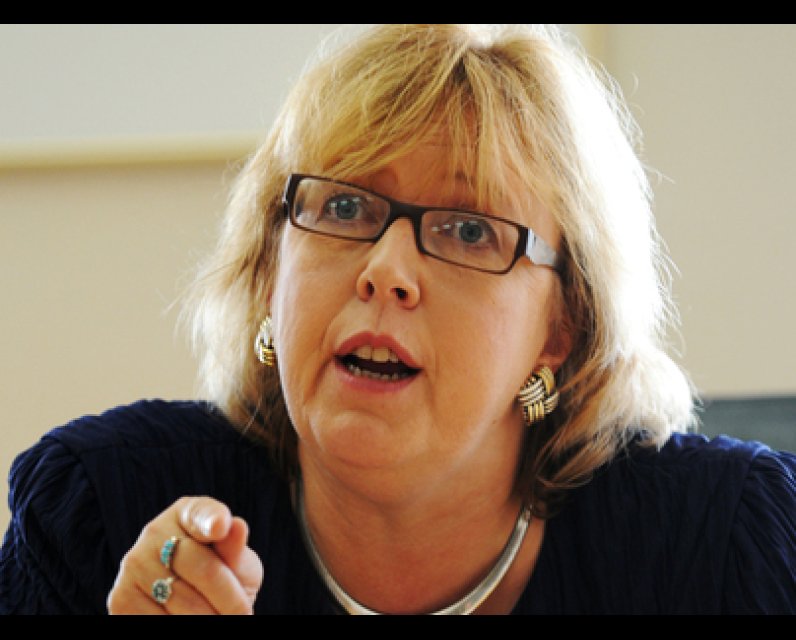Warning message
- Last import of users from Drupal Production environment ran more than 7 days ago. Import users by accessing /admin/config/live-importer/drupal-run
- Last import of nodes from Drupal Production environment ran more than 7 days ago. Import nodes by accessing /admin/config/live-importer/drupal-run
Unpublished Opinions
Elizabeth May is an environmentalist, writer, activist, lawyer, and leader of the Green Party of Canada. Elizabeth became active in the environmental movement in the 1970s. She is a graduate of Dalhousie Law School and was admitted to the Bar in both Nova Scotia and Ontario. She held the position of Associate General Council for the Public Interest Advocacy Centre prior to becoming Senior Policy Advisor to the federal minister of the Environment from 1986 until 1988. Elizabeth became Executive Director of the Sierra Club of Canada in 1989, a position she held until March 2006, when she stepped down to run for leadership of the Green Party of Canada.
Elizabeth is the author of seven books, including her most recent Losing Confidence: Power, Politics and the Crisis in Canadian Democracy. She has served on the boards of numerous organizations, including the International Institute for Sustainable Development and as Vice-Chair of the National Round Table on Environment and Economy and is currently a Commissioner of the Earth Charter International Council. Elizabeth became an Officer of the Order of Canada in 2005. In November, 2010, Newsweek magazine named her one of the worlds most influential women. In the 2011 Election, Elizabeth made history by being the first Green Party candidate to be elected to the House of Commons. She is the Member of Parliament for the riding of Saanich-Gulf Islands. In 2012, Elizabeth won Macleans Parliamentarian of the Year award, voted on by her fellow MPs.
Can you keep a secret?

It could be a self-parody, but it isn’t. In the wake of the breaking scandal about Canada’s espionage unit spying on the Government of Brazil, I realized I wasn’t sure about the origins and mandate of the operation called Communications Security Establishment Canada (CSEC). I know we have a number of spy groups. There’s the RCMP, of course, and CSIS, but the acronym CSEC was a bit murky.
I found their website and the home page banner welcome: ‘Can you keep a secret? Looking for a rewarding career? Join CSEC.’
Thanks to NSA’s whistle-blower Edward Snowden, it looks like the CSEC cannot keep a secret. Or, at least, that one day’s secrets are the next day’s ‘wiki-leak’. Between Julian Assange and Edward Snowden, ‘spy versus spy’ has turned into ‘spy versus spy versus public interest activist’.
The agency itself is the direct descendent of the code-breakers working in the Second World War. Over time, and thanks to the post- 9/11, 2001 Anti-Terrorism Omnibus Bill, the CSEC was given a legislative mandate. It is:
1.To acquire and use information from the global information infrastructure for the purpose of providing foreign intelligence, in accordance with Government of Canada intelligence priorities;
2.To provide advice, guidance and services to help ensure the protection of electronic information and of information infrastructures of importance to the Government of Canada;
3.To provide technical and operational assistance to federal law enforcement and security agencies in the performance of their lawful duties.
Communications Security Establishment Canada is not to spy on Canadians (more on that later). None of these listed activities would appear to cover spying on the Brazilian government’s mining and energy ministry and reporting to Canadian energy companies about their findings. Although nothing has yet been proven, this has the unpleasant odour of industrial espionage in favour of Canadian companies against Brazilian competitors. As Brazil is an ally, a global partner and a country with important Canadian interests, it is deeply shocking that Canadian spies were hacking into Brazilian government entities at all. But if they were, as evidence suggests, and they passed on such hacked information to Canadian companies, then we have dealt a serious blow to our credibility in the world. Some Canadian mining companies have already done damage to our global reputation through abuse of the environment and indigenous rights. If, as it appears, it turns out we are using government resources to do private hacking and spying on their behalf, we will have to do a lot of work to rebuild our reputation.
But the hacking stories didn’t end there. The Guardian reported it had gained, through an Access to Information request, the agenda of a briefing for Canadian energy companies from CSIS, the RCMP and CSEC. The agenda was for the May 2013 briefing which focused on ‘security of energy resources development,’ particularly in British Columbia. It is reported that regular briefings of Canadian resource companies from our spy agencies has been taking place since 2005. I find it more shocking than anything in the Harper agenda to date. I cannot imagine such activity taking place in the 1980s when I was in the environment minister’s office in the Mulroney administration. It is hard to imagine such activity starting under former Prime Minister Paul Martin either. I am keen to get to the bottom of just when this activity started and to what purpose.
Although The Guardian reports the documents were heavily redacted, the May 2013 agenda is clear enough. It included such topics as ‘threats’ to energy infrastructure but also covered ‘challenges to energy projects from environmental groups,’ ‘cyber security initiatives’ and ‘economic and corporate espionage.’
Refreshments and coffee, as well as the meals, were sponsored by Enbridge. CSEC, the agency that isn’t supposed to spy on Canadians, had something to contribute. Are they spying on US environmental groups?
And what are the RCMP and CSIS doing providing briefings to energy companies? It is clear that the lines are drawn and legitimate legal opposition to super-tankers and fossil fuel extraction is already demonized in the Harper administration. The oil companies are the ‘good’ and legal ones. Anyone opposing their plans can be caught in the web of anti-terrorist legislation and spied upon. Environmentalists and First Nations are under suspicion simply for wanting to preserve our coastline and protect our climate.
Harper’s administration treats the fossil fuel industry as the ‘client’ and all the apparatus of government as at their service. This is the worst perversion of democracy. This is corporate rule: government for, and by the corporation.
Many more questions are raised by these revelations than are answered.
While struggling with the disturbing implications of these developments over the Thanksgiving weekend, I was contacted by my friend Niki Ashton, NDP MP and like me, concerned about proposed Canadian gold mines in northern Greece. I had travelled to Greece in late June to help the local movements and to explore for myself the impact of such mines in relatively pristine areas of Greece. The president of Hellenic Mining Watch, Tolis Papageorgiou, had come to Ottawa a few months earlier to ask for help in opposing the proposed El Dorado gold mines. He greeted me in Halkidiki as we toured the area.
On the holiday weekend, Niki’s urgent news was that Tolis has been arrested and charged with forming a criminal organization. Legislation in Greece, put in place to deal with the threat from right-wing, quasi-fascists, is being used to arrest Tolis Papageorgiou and charge him with very serious criminal offences.
Not that such a thing could happen here.



Comments
Be the first to comment